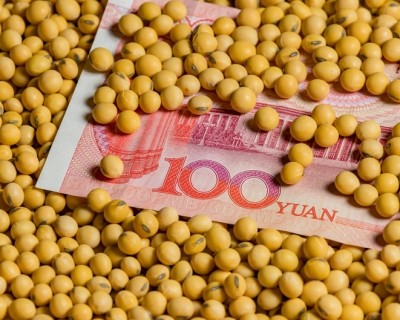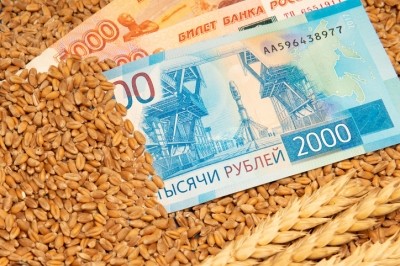Agri-commodity market tracker: Lower prices, Ukrainian exports obstructed, weaker Chinese demand, rain in South America

EU rapeseed, corn and wheat futures all fell, as did UK feed and US wheat markets, while US corn prices took a slight knock. However, US soybean prices rose, likely due to speculation around the US Environmental Protection Agency’s (EPA) upcoming decision surrounding biofuel mandates later this week, said the analysts.
Ukrainian exports restricted
Although the extension of the Black Sea grain corridor has weighed on EU grain prices in recent days, exports remain constrained and inspection delays continue to cause problems for supply chains. Therefore, the ongoing decline in prices is potentially linked to weaker demand rather than the Ukraine situation, said the CRM Agri team.
Ukraine wheat exports are still down roughly 30% from last year’s levels, they added.
COCERAL, the EU association of trade in cereals, oilseeds, rice, pulses, olive oil, oils and fats, animal feed and agricultural supplies, expressed concern today over the long-term possibility of exporting Ukrainian grain and oilseeds to the world market. It said a signifcant escalation of the war on November 23, with Russia firing over 70 cruise missiles across the country, caused major damage to infrastructure. "This left over half the country without power, which resulted in ports becoming inoperable, including those on the Danube River. Continuous attacks on infrastructure are impacting the viability of grain exports.”
The trade group is calling on the UN, the Joint Coordination Centre (JCC), and the EU institutions to further examine solutions to make it easier to export grain and oilseeds from Ukraine, with COCERAL also noting increasing delays in inspections by the JCC, which is facilitating the implementation of the Black Sea grain corridor. There are reports of waiting times of up to 40 days.
The JCC was established under the Black Sea Grain Initiative in Istanbul in July this year. It comprises senior representatives from the Russian Federation, Turkey, Ukraine, and the UN. Its role is to enable the safe transportation, by merchant ships, of grain and other foodstuffs and fertilizers from three key Ukrainian ports in the Black Sea to the rest of the world.
COCERAL is calling for more transparency in terms of the inspections, such as publication of data on inbound vessels and more clarification in relation to the rules around the prioritisation of vessels.
Weaker Chinese demand, rain in South American markets
Looking to China, and the outlook from CRM Agri reports that the People’s Bank of China cut its key interest rates over the weekend amid civil unrest tied to further lockdown measures to control the spread of Covid-19.
"The move by the central bank confirmed analysts’ expectations of ongoing weakness in the largest agricultural importers’ economy, boding poorly for grain demand," said the CRM Agri team.
Meanwhile, both Argentina and Brazil received a good amount of rainfall over the weekend, which should have helped ease drought concerns and further supported the long-term supply outlook, they said.












